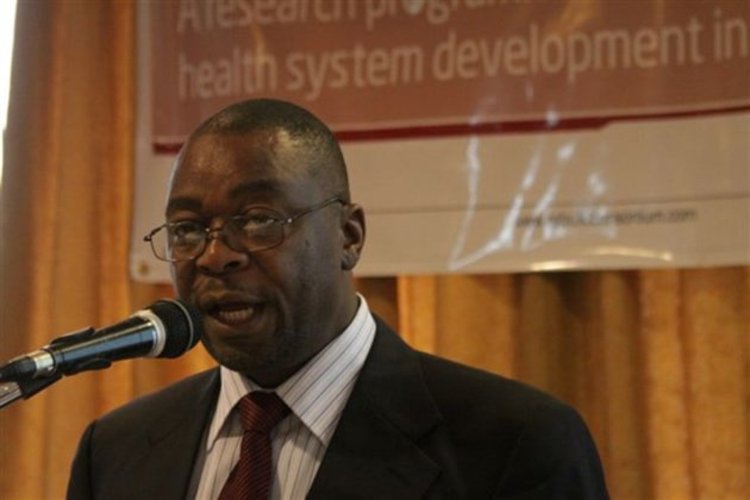
The Sunday Mail

Hon Dr Douglas Mombeshora
The Lands and Rural Resettlement Ministry is prioritising agricultural production since land redistribution is no longer an urgent matter. Most land has been distributed, and focus is now on factors affecting production such as security of tenure, funding and farming knowledge. Land utilisation under the A2 model (commercial) is between 45 percent and 50 percent.
A1 farmers are using 98-100 percent of their land as most of them have smaller portions comprising six hectares of arable land and 13 hectares of communal grazing land.
A2 farms are self-contained, with defined hectarage, and several factors explain why that land is not being used optimally. The major and common factor is lack of funding.
Globally, governments follow up land reforms with various support mechanisms. We were, however, slapped with Western economic sanctions soon after embarking on our land reforms.
The new farmers got onto properties with infrastructure mainly for one family — the white former commercial farmer’s family. The borehole, house and shades are around homesteads, and one person ended up benefiting from that infrastructure which used to support 5 000 to 6 000 ha.
Government has now demarcated smaller partitions, giving beneficiaries anything from 20 ha to 500 ha. That brings us to the next point — capital injection for infrastructure. Challenges such as water and electricity bill payments have emerged on partitioned farms, making capital injection imperative.
However, the money is not there, and secondly, bank finances have a small tenure that only enables farmers to buy seed and fertilisers. Infrastructure support capital should be medium to long-term, and that is not on the market.
Banks that offered loans before had high interest rates, something that saw many farmers deep in debt, even today. Some farmers ran away because of debt, and others are just concentrating on a small, affordable piece of land.
I have observed, though, that production is slowly coming up. There has been contract farming, especially in tobacco, and that has raised that crop’s output to levels almost similar to those that obtained when the land reforms were implemented.
Government is also encouraging joint ventures or partnerships, not only with foreign investors, but with local ones. Some (businesspeople) want to run factories whose raw materials are supplied by farmers; so that is an opportunity for partnership.
That is helpful as you can raise capital from your resources. Low agricultural production is a reality, and Government is working on a number of strategies, including partnerships.
Business people have access to capital and are encouraged to join farming so as to help in food production. The Agriculture and Rural Development Authority has gone quite a long way in terms of public-private-partnerships, resulting in improved production and land clearing.
It is hoped that Arda will in the next three years start contributing significant food supplies to the nation. We implore Arda to work with farmers to increase production.
Further, Government will conduct an extensive audit that will tell us the challenges farmers are facing. The Land Commission has already been set up while the enabling Bill has now been finalised.
Farm disputes, for instance, affect production, and that is one of the areas this Commission will deal with. Water distribution is among the factors that spark such disputes as some people try to take ownership of water infrastructure on partitioned farms.
One can apply for servitude to get water to his or her plot. There are also challenges in dam utilisation. The Zimbabwe National Water Authority controls all water bodies.
It’s disconcerting that some farmers do not want to construct or repair dams because “it’s not mine”. We hope Zinwa will ensure farm water usage is organised to eliminate disputes. The Constitution says all agriculture land belongs to the State.
Since 2014, Government and the Bankers’ Association of Zimbabwe have been discussing the securitisation of the 99-year lease. I am glad to announce that we have finalised those discussions.
Issues raised by banks have been ironed out, the 99-year lease has been redrafted and is now bankable. The document has to go through the Cabinet Committee on Legislation, so I’m not certain yet when I will present it to Cabinet.
The lease can be transferred from one person to another. At this stage, if one does not want to farm anymore, he or she should surrender that land to Government.
We are open to further discussions and suggestions on perfecting that document. Basically, Zimbabwe has three classes of security of tenure documents. We have the A1 permit, which covers A1 farm beneficiaries.
That document says the piece of land you occupy is yours forever and can be inherited in accordance with our inheritance laws. The second document is the 99-year lease. The last one is the freehold title where one has title deeds to a piece of land.
This mainly applies to small-scale farms previously known as matenganyika. Those farmers still have title deeds to those pieces of land. Honourable Dr Douglas Mombeshora is the Minister of Lands and Rural Resettlement. He made these remarks at the Zimbabwe National Chamber of Commerce annual congress in Victoria Falls recently.



